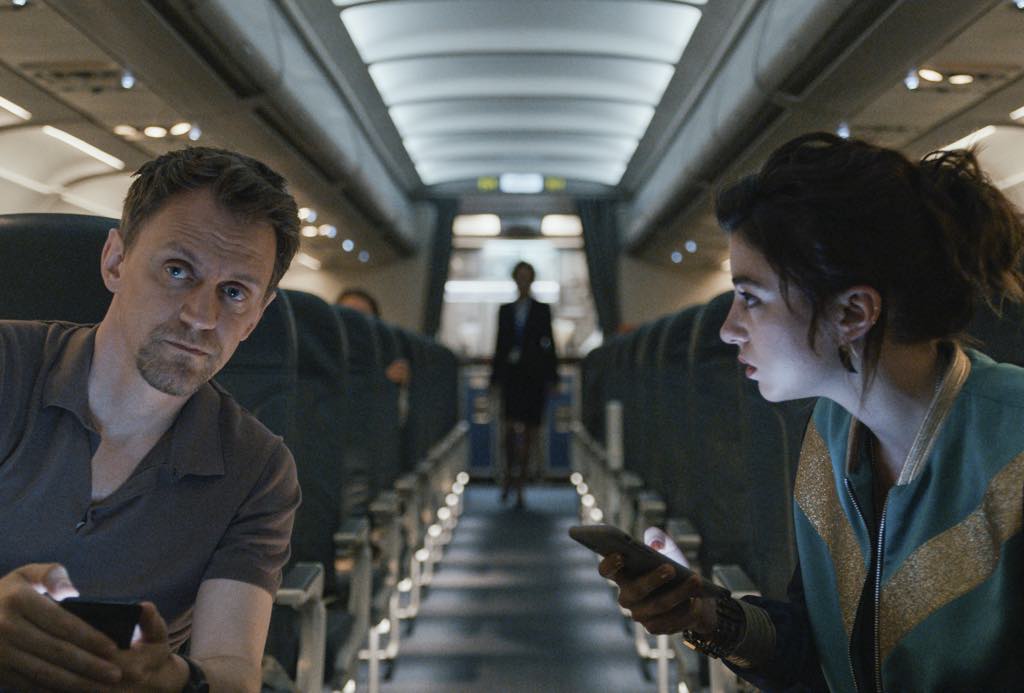Flying has never been the same since the terrorist attacks of 9/11. That, together with decreasing seat sizes and the multiplication of extra fees, has taken the romance out of traveling. Like all thrillers, the TV series Into the Night plays on one of our common, deep-seated fears: what if something were to go wrong on a plane?
This Belgian show, created by Jason George and released on Netflix on May 1, 2020, has a claustrophobic setting: most of the action takes place inside a plane, with some flashbacks and occasional scenes in airports. It has struck a chord at a moment when much of the planet is experiencing a major health crisis and lockdown. While the streaming giant zealously refuses to release viewing figures, the fact that it renewed the show for a second season within two months of its release hints that it had attracted a large audience.
The six-episode first series opens with a couple kissing on a bed. As the camera pans away, we discover that the bed is in a hospital and that the man in it is dying. In the next scene, his companion, holding an urn containing his ashes, rushes to Brussels Airport to catch a flight, striking a chord with those of us who have faced sad, lonely trips to see ailing loved ones during the pandemic.
This beginning with a painful, intimate story sets the scene for the drama of passengers caught up in wider events. In the airport, we meet various characters, including Ines Ricci (Alba Gaïa Bellugi), a famous, self-absorbed social-media influencer, but our attention is soon diverted to a man in a NATO uniform, who parks in a restricted area, tries to get through security on the pretext of NATO business and then buys an exorbitantly expensive one-way ticket to New York.
Our suspicions about him are confirmed when he grabs a rifle from a lax police officer and runs onto the redeye flight to Moscow, where the grieving widow and social influencer are ready aboard, along with a handful of other passengers. The gunman forces the copilot – the pilot hasn’t yet boarded – to take off and head west.
Terenzio Gallo, the Italian officer who has commandeered the aircraft, rambles on to the cabin crew about a terrible solar catastrophe that will soon extinguish any life forms exposed to sunlight. (His last name is a neat play on words: “gallo” is Italian and Spanish for rooster, the bird that noisily announces daybreak.)
The plane takes off and the mystery deepens. Terenzio is subdued by a passenger and locked in the restroom, but when it becomes increasingly obvious that he isn’t a delusionary madman, the copilot releases him. It is at this precise moment that the drama changes from a hijacking scenario to science fiction.
The rest of the season involves the aircraft encircling the globe seeking temporary shelter and refueling along the way in an endless quest to avoid daylight. Various theories are postulated online and by passengers about the origins of the disaster, from ionizing gamma rays to divine punishment. As they – and we – seek answers, we also get to know the survivors onboard, with each episode focusing on one passenger, from lonely Rik (Jan Bijvoet, Episode 5) traveling to Moscow to meet his scam mail-order bride to Ayaz (Mehmet Kurtuluş, Episode 4), a debonair Turkish pimp and diamond smuggler.
I won’t give too much away as the show relies on our expectations being toppled, but I can say that the nightmarish, neverending nocturnal journey is also an emotional journey, during which life-or-death judgments about the future of passengers have to be made when immoral behavior rears its ugly head.
Any drama largely set in such a confined space has the immediate intensity of a stage play. We learn to understand the characters, who they are and why they behave as they do rather than being handed a sugary, prepackaged hero to latch onto. This may well be the key to the series’ popularity.
The success of the show might seem counterintuitive during a catastrophic global pandemic, but a recent study argued that fans of horror (apocalyptic fiction such as In the Night is included in the study) have shown greater psychological resilience during the chaos of the past year. Whether or not it acts as that kind of tonic, the show is a refreshingly original take on an imagined threat to humanity.
Favorite
